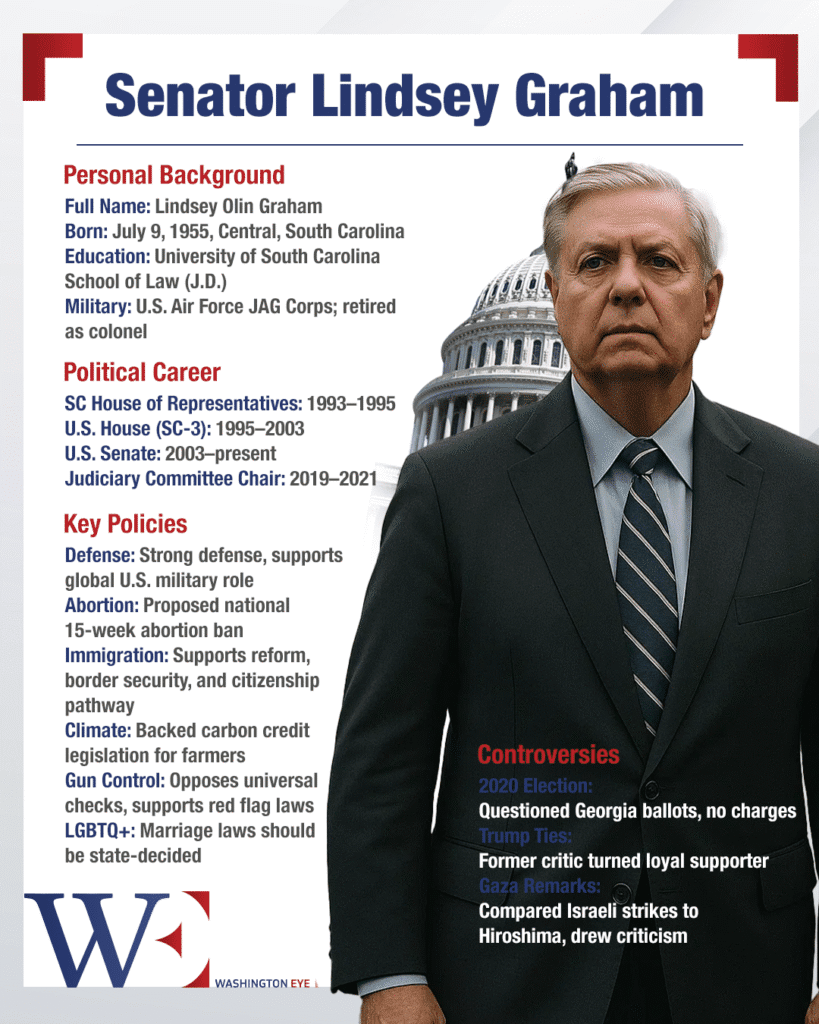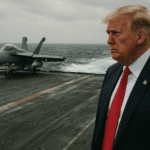Senator Lindsey Graham’s recent declaration that U.S.-Saudi defence cooperation must include Saudi normalisation with Israel comes at a complex moment for Middle East diplomacy. While critics suggest the door has closed, Graham’s remarks could reflect not just a policy stance—but a glimpse into behind-the-scenes progress that has yet to reach the headlines.
The broader context is clear: the post-October 7 fallout has shifted the regional mood. Yet even amid deepening humanitarian concerns in Gaza and rising pan-Arab solidarity with Palestinians, there are reasons to believe that the strategic logic underpinning Saudi-Israeli engagement remains intact—albeit postponed, not abandoned.
From Quiet Coordination to Public Caution
Before the war, Saudi Arabia had engaged in indirect negotiations with the United States and Israel, exploring a historic pact that would involve American defence guarantees, access to civil nuclear technology, and tangible (if limited) movement on Palestinian rights. These were not hasty talks—they followed years of quiet coordination and shared threat assessments, particularly around Iran.
October 7 changed the optics but not the underlying strategic calculus. Israel’s war in Gaza understandably halted progress, but it has not erased the geopolitical realities that drew Riyadh and Tel Aviv closer in the first place. While Saudi officials have currently taken normalisation “off the table,” this may reflect a tactical repositioning rather than a full strategic reversal.
Riyadh’s Calibrated Response: Moral Leadership, Diplomatic Patience
Saudi Arabia’s recent statements, including Crown Prince Mohammed bin Salman’s strong condemnation of Israel’s actions in Gaza and Lebanon, reflect the Kingdom’s desire to reassert its leadership in the Muslim world. But they also serve a dual purpose: to safeguard domestic legitimacy and protect Riyadh’s long-term diplomatic leverage.
Rather than rejecting normalisation outright, the Kingdom appears to be reframing the terms—delaying public progress while advocating for meaningful steps toward a Palestinian state. This is not a no—it is a not yet.
Indeed, the idea that Israel must address the Palestinian issue as part of any normalisation deal is not new. It was already a component of the 2023 negotiations, which included symbolic gestures and economic incentives for Palestinians. The war has raised the stakes, not removed the framework.
Senator Graham’s Statement: Misstep or Strategic Signal?
To some, Senator Graham’s comment—“I will never support a defence pact with Saudi Arabia… unless it includes normalisation with Israel”—might seem tone-deaf. But it may also reflect a broader understanding of American leverage and regional strategy. Rather than imposing conditions, Graham could be signalling Washington’s continued faith in the long-term viability of the Abraham Accords model.
It is also possible the Senator knows more than is currently public. American diplomacy has often moved through backchannels, especially in the Middle East. If conversations have resumed—even informally—then Graham’s statement might be less about pressure, and more about preparing public opinion for eventual progress.
What Happens After Gaza?
Saudi Arabia is unlikely to formalise ties with Israel while war rages in Gaza and while Israeli leadership faces increasing international criticism. But this does not mean the idea has died. The Kingdom has shown it can play a long game, using periods of tension to reshape the narrative in ways that align with its evolving regional ambitions.
The next phase of diplomacy will require more than mutual interest—it will require mutual concessions. If Israel demonstrates a credible commitment to Palestinian rights, and if the Gaza crisis subsides, Riyadh could re-engage. The U.S. may then present a more comprehensive deal—one that balances military assurances, economic incentives, and a moral roadmap for regional stability.
A Window, Not a Wall
The path to Saudi-Israeli normalisation has never been linear. It has always involved delicate trade-offs, public sensitivities, and geopolitical calculation. Today, that path is obscured by the fog of war—but not entirely blocked.
Senator Graham’s remarks may be read as premature by some. But they may also foreshadow quiet diplomatic currents moving beneath the surface. If so, the real question is not whether normalisation is possible—but how, and when, conditions will once again allow it to emerge.


















